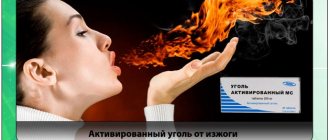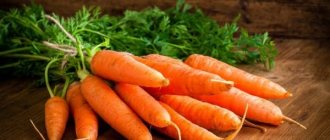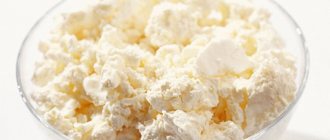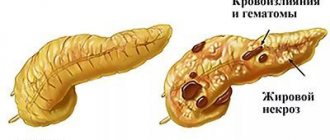Why can sweets cause heartburn?
An unpleasant burning sensation behind the sternum has a direct connection with nutrition. An excess of simple carbohydrates in the diet can increase acid production and also provoke increased gas formation1. Both parameters increase the risk of food reflux from the stomach into the esophagus, which can cause heartburn.
Carbohydrate foods that may cause burning include:
- chocolate;
- cakes, butter cookies;
- sweet carbonated drinks;
- sweet coffee and tea;
- any baked goods;
- fruit juices with sugar;
- sweets2,3.
Not every person gets heartburn from sweets. The risk of developing a symptom increases if there are additional factors:
- binge eating;
- eating fried, fatty foods;
- smoking;
- alcohol consumption;
- overweight;
- pregnancy;
- wearing tight belts;
- excessive physical activity after eating, especially bending;
- horizontal position after eating3.
The occurrence of heartburn after eating sweets more than once a week for several months may indicate the development of gastroesophageal reflux disease2. Main symptoms: heartburn and sour belching3. The disease occurs due to persistent weakening of the muscular sphincter between the stomach and esophagus2.
Role in heartburn of gastric juice
Sweets consist of carbohydrates that are quickly digested. The body does not spend a lot of energy on this. The processing of easily digestible carbohydrates begins right in the mouth; no additional effort is required from the digestive system. On the contrary, as soon as sweet gets there, irritation of the receptors occurs. Then the production of hydrochloric acid increases.
It is required for processing whole food, which compacts into lumps, and sweets do not harden and dissolve quickly. Hydrochloric acid begins to irritate the gastrointestinal mucosa. It is gradually being destroyed.
With constant consumption of sweets, the deep structures of the stomach come under attack. Its walls become thinner, ulcers and erosions form. Burning and bitterness in the mouth appears more and more often. Unpleasant and painful sensations can be observed even after drinking sweet tea.
Attention! Frequent attacks lead to serious diseases and complications of the esophagus.
How to deal with heartburn?
If heartburn occurs occasionally, you should reconsider your diet and eating habits, as well as change some daily habits. General recommendations for preventing recurrent heartburn from sweets:
- Eating small meals at least 3 times a day. Dinner should be 2-3 hours before bedtime.
- After eating, it is recommended to take a walk in the fresh air. But under no circumstances should you lie down.
- Food should be varied and contain the necessary macro- and microelements. It is recommended to avoid fried, fatty, spiced, smoked and canned foods. You need to add proteins and plant foods to your diet. Simple carbohydrates should be limited as much as possible.
- Normalize your body weight. Increase physical activity, but it should not be done immediately after eating. Watch your caloric intake.
- Give up bad habits. Smoking helps relax the esophageal sphincter. Alcohol increases acid production.
- Wear comfortable clothes. Do not tighten your waist with belts on trousers, coats, or robes. This physically promotes the reverse movement of food.
- It is recommended to sleep with the head end elevated.
- You should avoid physical activity that involves lifting heavy objects, bending over, or straining your abdominal muscles2,3.
Additionally, you can use medications that alleviate the condition. Many people are familiar with antacids to combat heartburn. These medications neutralize stomach acid. To influence the very cause of heartburn, drugs are used that suppress acid production - proton pump inhibitors,3.
What diet helps relieve heartburn symptoms?
As a rule, an excess of fatty and spicy foods, especially with an irregular diet, can contribute to the appearance of heartburn. If the diet is violated, almost everyone experiences rare attacks of heartburn; this condition usually does not require treatment. But if you have chronic heartburn caused by gastroesophageal reflux disease (GERD) or another gastrointestinal disease, you will need the right treatment with special medications, diet and lifestyle changes.
Proper treatment of chronic heartburn always begins with a visit to a gastroenterologist in order to establish an accurate diagnosis and receive treatment recommendations.
You can make an appointment with a gastroenterologist at the Expert GC, specializing in the treatment of chronic heartburn, by phone. 426-33-88
Diet and lifestyle changes recommended to relieve heartburn usually involve avoiding foods and activities that may cause or worsen symptoms. But this does not mean that the fate of all people suffering from heartburn is a tasteless and disappointing menu. The dietitian's goal is to choose a diet that includes a healthy variety of foods and reduce heartburn symptoms.
In most cases, the foods that serve as a trigger for heartburn are individual and different for each person. But some of them cause heartburn in almost everyone.
The most common culprits of heartburn
Coffee
Strong espresso, espresso-based coffee drinks such as lattes or cappuccinos, less concentrated drip coffee, and even decaffeinated coffee should all be avoided. The more coffee you drink, the more likely you are to experience heartburn. You can try switching to tea instead of coffee. Some patients report problems when drinking tea, although this is not as common.
Alcohol and carbonated drinks
Researchers are divided when it comes to alcohol. Some studies show that there is no connection between moderate alcohol consumption and heartburn. While others show that certain types of alcohol, especially wine and spirits, drinks can cause heartburn. Therefore, if you have a heartburn attack, we suggest cutting out the alcohol.
Carbonated drinks contribute to increased production of hydrochloric acid in the stomach and decreased tone of the lower esophageal sphincter.
Chocolate
Unfortunately, chocolate contains several substances that contribute to heartburn. Caffeine, theobromine and fat can be blamed for this. If you're lucky, you may be able to consume dark chocolate because it contains less fat, but many people who suffer from heartburn are forced to go without chocolate altogether.
Peppermint candies and peppermint
If you have indigestion, mint may help because it can relieve gastrointestinal spasms. But if we are talking about heartburn, then mint should be excluded - the same relaxation effect also affects the sphincter between the esophagus and the stomach, which contributes to the reflux of acid from the stomach into the esophagus.
Garlic and onion
These vegetables add wonderful flavor to a variety of dishes, but they can also make heartburn worse, especially raw onions. Therefore, cook these vegetables.
Tomatoes and citrus fruits
Tomatoes and tomato-based products (such as tomato sauce) are also prohibited because they contain acid. In fact, tomatoes even contain two types of acid—malic and citric—each of which can cause heartburn on its own.
Apart from tomatoes, citrus fruits and juices such as oranges and lemons should be avoided.
Fried and fatty foods
If you struggle with heartburn, high-fat foods are a no-no. Lard, fatty meats, cheeses and anything fried are prohibited. But, no matter how hard it is to believe, avocados and nuts are also prohibited. This time it doesn't matter whether the fats are "healthy" or not. It is also better to exclude prepared foods that contain trans fats and margarines.
High-fat meals and fried foods tend to decrease lower esophageal sphincter tone and delay gastric emptying, increasing the risk of heartburn.
The remaining foods that can be a trigger for heartburn are individual and vary for each person. In order to identify them, we recommend keeping a food diary for a week. This will of course take time, but it will help to more accurately determine which foods cause the symptoms of the disease and improve your well-being.
If you are having difficulty choosing a diet, we advise you to contact a certified nutritionist at the Expert GC, make an appointment by phone. 426-33-88
To date, there are no clinical studies showing that there are foods that reduce heartburn symptoms, but the following foods may help you relieve or avoid symptoms.
Products that are recommended to be included in the diet for heartburn
Fruits and vegetables
From a variety of non-acidic fruits, such as bananas, melons, apples and pears, you can choose what suits you and does not cause unpleasant symptoms.
Although there are restrictions, most vegetables can be used. Avoid or reduce pickled or fermented vegetables, high-fat sauces, or other irritants such as tomatoes, onions, or spices.
Potatoes and other root vegetables are sources of healthy carbohydrates and fiber, but avoid adding onions, garlic or tomatoes while cooking, as these are major heartburn triggers.
Lean meat, fish and eggs
It is recommended to use soft-boiled eggs or scrambled eggs. However, if eggs are a problem for you, you can use only the whites and skip the yolks, which contain a high percentage of fat, which is most likely to cause symptoms.
Give preference to dishes made from lean meat or fish, boiled or baked.
Complex carbohydrates
Oatmeal, rice, buckwheat and whole grain bread without adding rye flour. These are all good sources of healthy complex carbohydrates. Whole grains and brown rice increase the amount of fiber in your diet.
Healthy fats
Fats are a special type of nutrient - they contain a lot of calories, but are essential in your diet. Try replacing saturated fats with unsaturated vegetable oils such as olive, sunflower, corn or flaxseed.
In addition to diet, it is recommended to relieve heartburn symptoms
- stop smoking;
- get rid of excess weight, losing 2.5 to 5 kg can reduce the symptoms of heartburn;
- eat at least 3-4 times a day, in small portions and without overeating;
- eat slowly, chewing food thoroughly;
- do not bend over after eating;
- have dinner several hours before bedtime, do not lie down after eating;
- raise the head of the bed by 10-15 cm;
- do not wear tight belts.
If you are bothered by attacks of heartburn at least once every week, interfere with sleep at night, get worse when bending over and lying down, and do not go away even with the strictest diet, we suggest you come to our center for a consultation with a gastroenterologist in order to solve this problem.
You can make an appointment with a gastroenterologist at the Expert Center by phone. 426-33-88
Omez 10 mg for heartburn
Omez 10 mg belongs to the group of drugs called proton pump inhibitors, which are used to treat heartburn4. The drug helps suppress the production of acid in the stomach. Omez 10 mg is recommended to be taken 30 minutes before meals so that it has time to reach the parietal cells of the stomach and block the work of the proton pump - the last stage of acid production. The maximum recommended course of treatment without consulting a doctor is 14 days4.
Omez 10 mg is available in a special aluminum strip, which protects the drug from the effects of environmental factors. Pillets (small granules containing the active substance inside) have three layers, two of which contribute to the full delivery of the active substance to the parietal cells. The drug undergoes 37 control tests. It is recommended to take 2 capsules of Omez 10 mg per day4.
The causes of heartburn after eating sweets are the excessive production of stomach acid. Omez 10 mg helps reduce the production of this acid, so it can be used to treat and combat heartburn and sour belching caused by sweets4.
Bibliography:
- I.G. Pakhomova. Heartburn: modern principles of examination and treatment of patients // RMJ. 2015. No. 21. pp. 1249–1252. https://www.rmj.ru/articles/gastroenterologiya/Izghoga_sovremennye_principy_obsledovaniyai_lecheniya…
- Ivashkin V.T., Maev I.V., Trukhmanov A.S., Baranskaya E.K., Dronova O.B., Zayratiants O.V., Sayfutdinov R.G., Sheptulin A.A., Lapina T. L.L., Pirogov S.S., Kucheryavyi Yu.A., Storonova O.A., Andreev D.N. Clinical guidelines of the Russian Gastroenterological Association for the diagnosis and treatment of gastroesophageal reflux disease. Ros journal gastroenterol hepatol coloproctol 2017; 27(4):75-95. (https://webmed.irkutsk.ru/doc/pdf/gerdru.pdf)
- Osadchuk A.M., Davydkin I.L., Gritsenko T.A., Khairetdinov R.K., Kurtov I.V., Danilova O.E., Rogozina L.A., Kosyakova Yu.A., Krivova S. .P. Heartburn syndrome. Current issues of pathogenesis, differential diagnosis and treatment // Modern problems of science and education. – 2022. – No. 5.; URL: https://www.science-education.ru/ru/article/view?id=26974 rel=”nofollow” (access date: 09.22.2020).
- Instructions for use of the medicinal product for medical use OMEZ®10 mg LP 00328 dated 07/11/17 Date of access 09/22/20.
How dangerous are sweets for the stomach?
Sweets, cakes and other delicacies differ in their taste and appearance. Attracts with bright colors. Why do they cause heartburn? When making desserts, many harmful ingredients are used, even granulated sugar is fake. Large volumes of delicacies cannot be sold in a day or two, so in production facilities for long-term storage of products, chemical ingredients are added:
- preservatives;
- vegetable fats;
- barley malt extract;
- emulsifiers;
- moisture-retaining additives;
- antioxidants;
- sweeteners.
Various dyes are used to create a beautiful appearance. To enhance the aroma and taste, enhancers are added (for example, monosodium glutamate). Many artificial food ingredients are also carcinogenic.
How chemical additives work can be seen using monosodium glutamate as an example. It strongly irritates the receptors of the digestive tract. With constant consumption of sweets, the muscle valves between the esophagus and stomach weaken. Oxidized food begins to seep through the thinned film, which negatively affects the mucous membrane.
What role does excess weight play in heartburn?
The cause of its appearance may be excess weight. As sugar enters the body, especially in large quantities, fat gradually accumulates. The stomach begins to increase. Fatty tissue displaces internal organs from their usual places.
At the same time, pressure increases in the peritoneum. Additional stress is placed on the lower esophageal sphincter. The valve ceases to cope with its function - not to release its contents from the stomach into the body. If overeating is added to this, the sphincter weakens completely. Gastric juice increasingly seeps into the esophagus, and an unpleasant and painful burning sensation becomes regular.
How to prevent heartburn
To prevent heartburn, you need to limit the amount of sweets you consume. You can't snack on them if you're hungry. The stomach requires complete food. It is advisable to eat at certain times, in small portions.
Important! You should not eat sweets on an empty stomach.
A couple of sweets eaten occasionally will not have a destructive effect on the gastrointestinal tract, but excessive consumption of sweets will definitely cause harm. If a person cannot drink tea or coffee without sugar, then it is added in minimal dosages, no more than two spoons per cup.
Heartburn is a very unpleasant sensation that can lead to serious gastrointestinal diseases. When attacks occur, it is necessary to adjust the diet, special attention should be paid to sweets. It is recommended to drink two to three liters of water daily. This will help cleanse the body of harmful substances.








